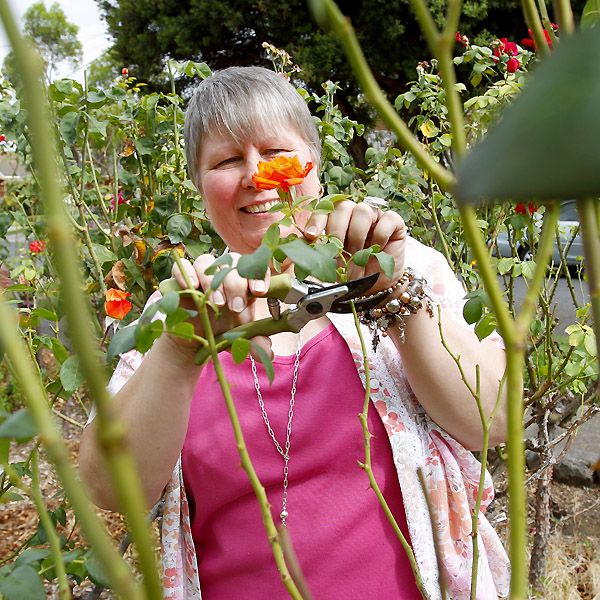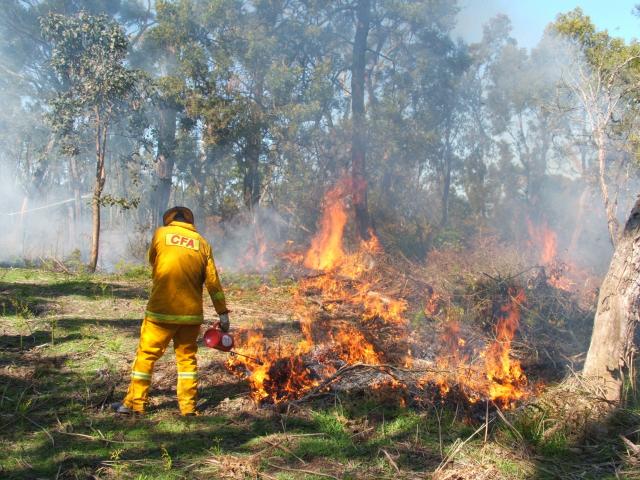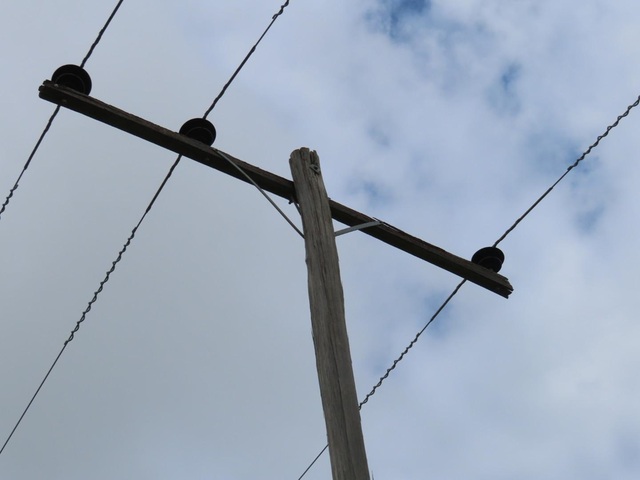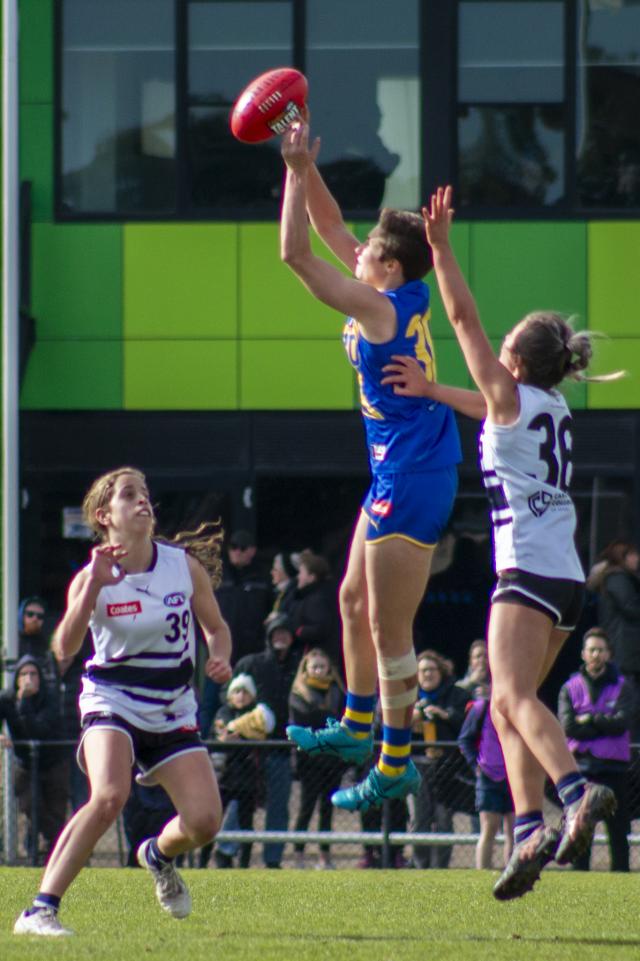For most cancer survivors the battle doesn’t end when they receive the all clear, as Anthony Loncaric reports.
HER doctor told her she was too young to have breast cancer. That’s why the next day Karin Steinhoff was sitting alone in a room at a radiology clinic wearing nothing but a nondescript, white gown.
She hadn’t bothered to ask any family members or friends to come with her because she thought all would be fine.
The radiographer walked her into the room and asked her to bare her breast. He looked at it in silence, stopping only to type something into his computer.
Using a ruler, he began measuring under her armpit.
He called for a colleague. Karin’s first thought was he might be a student and needed a supervisor to sign off on his diagnosis.
When the second man entered, he didn’t waste time exchanging pleasantries. Minutes passed. They called for a third man.
The 43-year-old Keilor resident had undergone many ultrasounds in the past but there was never more than one person in the room. Now she had two radiographers and a doctor scrutinising her.
Tears started to roll down her cheeks. They didn’t need to say a thing. Life changed so quickly.
Since being diagnosed with breast cancer last April Karin has experienced many emotional and psychological challenges. And she is not alone.
Cancer affects most families and according to the Cancer Council Australia 114,000 new cases were diagnosed nationally in 2010.
One in two Australians will be diagnosed with the disease by the time they’re 85, while the survival rate for many common cancers has increased by 30 per cent in the past two decades. And more than 60 per cent of cancer patients will survive more than five years after diagnosis.
But survival comes with a psychological price.
Psychologist and former oncology nurse of 25 years, Mary Harvey, says cancer is experienced as a trauma and can turn many lives upside down.
“Statistic show up to 66 per cent of people with cancer experience long-term psychological distress. I see a lot of people who are newly diagnosed with cancer who suffer from anxiety and depression.
“But there are others who put all the emotional stuff away because they are focused on beating the cancer at the treatment stage. For them it can be years later that they realise they have a lot of emotional and psychological issues they never dealt with.”
Karin says going through chemotherapy treatment was “awful” but what follows can be even more difficult.
Like many survivours she can at times feel isolated because she is no longer being managed by a specialist.
‘‘For months you are so busy managing your treatment and then there is nothing,’’ she says. ‘‘They tell you to take a tablet for five years and it’s only then that I started to struggle emotionally.’’
She still struggles with ‘‘chemo brain’’ which is when people get spells of short-term memory loss for months after the treatment.
“I’m taking some medication now which switches off oestrogen production in my body and I’m struggling from it more so than I did with chemo.
“Mary says cancer survivors can struggle with body image concerns.
“You see people struggle because they may have had surgery on their body or experienced hair loss or changes in their weight,” she says.
Then there are the sexuality concerns many cancer survivors face. Karin is a member of the Brimbank Breast Cancer Support Group which meets once a month at the Delahey Community Centre.
“We had a guest speaker come in to talk to the group and she gave out tubes of lubricant and told us it was our reality from now on,” Karin says. “Chemotherapy puts you in a menopausal state and you lose your libido and it can be quite painful to be intimate.’’
She says it is vital cancer sufferers have an open and honest conversation with their partner as soon as possible.
The thing that’s kept Karin from breaking down emotionally is knowing she has to be strong for her two children.
“My biggest strength is that I have to be a parent, but it can be the hardest thing for me to manage,” she says. “There have been times I just wanted to be like a child and be cared for because I was so sick, or just be self-focused.”
The support of close family and friends has been vital in her recovery.
While she was on chemotherapy people who live in her neighbourhood would regularly bring over a meal so she didn’t have to worry about cooking.
“Community spirit helped me get through and people would always ask how I was going and if I needed support,” Karin says.
Not all cancer survivors have been able to count on such an extensive support network.
After being diagnosed with breast cancer in 2008, Pascoe Vale’s Debra Cama, 52, had no choice but to work during her chemotherapy and radiotherapy.
The single mother says there were times at work she would stand against a wall and begin to cry.
“Cancer is not cheap and I had to support my two children,” she says. “I used to work in the morning and have radiotherapy in the afternoon. I’d go home and go straight to bed because I had to get up for work the next day.”
But she has pushed through the emotional hardship and says she has had to re-evaluate her life. She is doing things she always wanted to do in the past but never had time, joining a craft group and a support group, which she describes as like having another family.
“The hardest thing was walking through the door and standing in front of a group of strangers,” she says. “But they welcomed me and I didn’t have to tell them anything until I was ready.”
The Airport West group is made up of people with different types of cancer and family members of those who have died from the disease.
Carers of people with cancer also come along to sessions.
Werribee survivor Robert Giarrusso has also benefited from joining a support group.
The 53-year-old has had his fair share of ups and downs, having had two brain tumours removed.
He was first operated on in 2007 and says being out of work for long periods has put him and his wife Renata under financial strain.
“I work as a truck driver in Laverton North but have spent much of the past few years in doctor’s clinics or doing rehab,” he says. “I had the second tumour removed after Easter in 2010 and I couldn’t go back to work until November.’’
He joined the Werribee District Cancer Support Group to help others with brain tumours.
“A lot of people are out there and struggling after having survived cancer and they don’t know what to do for help. I joined to help others and have visited a man in hospital to help him stay positive and offer him some hope.” he says.
Like Debra, Robert has had to make changes to his lifestyle.
“I used to get home from work and spend another two or three hours working on cars in my garage but I don’t have that kind of energy any more,’’ he says.
One thing which haunts all three sufferers and causes angst for cancer survivors is the possibility of the disease returning.
“When I’m in bed at night with my own thoughts I lay there and think about my mortality,” Karin says. “All these questions start to pop into my head like; am I going to be here in two years time? Or will I be here when my children turn 18 and 21 or for their wedding days?’’
CANCER COUNCIL HELPLINE: 13 11 20.







